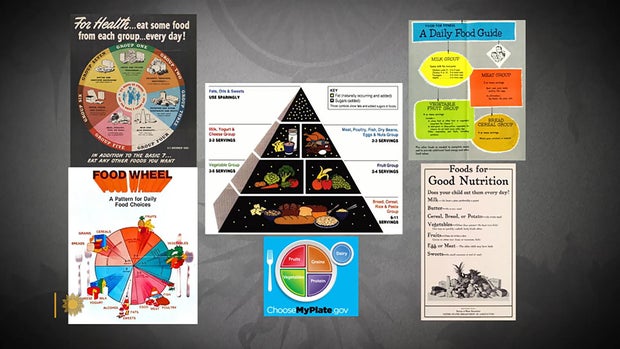CBS News
Debt forgiveness vs. debt management: Which is better for high credit card debt?

kitzcorner/Getty Images
The tough economic landscape over the last few years has resulted in a concerning trend: an uptick in credit card debt nationwide. The total amount of credit card debt in the U.S. is now $1.14 trillion — a record high — with the average cardholder owing nearly $8,000. And while various factors have contributed to the rise in credit card debt, the ongoing issues with inflation have almost certainly played a role.
With the cost of consumer goods rising, more people have had to turn to credit cards to fill in the gaps in their budgets. But while that can make it easier to cover your expenses or manage cash flow, it can quickly spiral into a long-term financial burden. After all, the average credit card rate is currently hovering around 23%, so the compounding effect of interest on your outstanding balances can be particularly devastating.
As interest charges pile up, you may find that the minimum payments on your card barely impact the balance. If this happens, it makes sense to explore alternative strategies for dealing with your credit card debt, like credit card debt forgiveness (also known as debt settlement) and debt management. But which approach is more effective for those struggling with high credit card balances?
Don’t let your credit card debt issues compound. Compare the best debt relief options available to you here.
Debt forgiveness vs. debt management: Which is better for high credit card debt?
If you have high credit card debt, here’s what you should know about both of these debt relief options:
When credit card debt forgiveness is better
Credit card debt forgiveness is a strategy in which you (or a debt relief company acting on your behalf) negotiate with your creditors to try and get them to accept a lump sum payment that is less than the full amount owed. If successful, the remainder of the card balance is forgiven.
While it varies, the average successful debt settlement typically ends with between 30% to 50% of the original debt amount being forgiven. In other words, if you owe $20,000 in credit card debt, you might be able to settle for between $10,000 and $14,000 with the rest of the balance written off by the credit card company.
Given the potential to have a substantial portion of debt forgiven, this approach may be particularly appealing for those who are struggling with severe financial hardship. A debt forgiveness program can also typically be completed in two to four years, so opting for this over traditional strategies could expedite the repayment process.
That said, there are downsides. Debt settlement typically requires you to stop making payments temporarily, which can severely damage your credit score. Any forgiven debt may be considered taxable income by the IRS, and debt settlement companies often charge significant fees (typically between 15% to 25% of the total enrolled debt) for their services.
But even with the potential downsides, debt forgiveness may be the better option if:
- You’re facing severe financial hardship with no foreseeable way to repay your debts in full.
- Your debt-to-income ratio is extremely high (typically over 50%).
- You’re willing to accept a significant hit to your credit score in exchange for potential debt reduction.
- You’ve exhausted other options and are considering bankruptcy.
Find out how debt forgiveness could help you get rid of your high-rate card debt now.
When credit card debt management is better
Debt management programs, typically offered by credit counseling agencies, involve working with your creditors to lower your credit card interest rates or fees and create a structured repayment plan. This approach aims to make debt repayment more manageable without seeking forgiveness of the principal amount owed.
The main advantage of enrolling in a debt management program is that it often results in reduced interest charges, which can make your card debt more affordable. Enrolling in a debt management plan also generally has a less severe impact on your credit. While participation in the program may be noted on your credit reports, you will continue making regular payments, which can help maintain or even improve your credit score over time.
But as with debt forgiveness, there are downsides to consider, like a longer repayment period, as debt management plans typically take three to five years to complete. Unlike debt settlement, you’re also responsible for repaying the full principal amount — and there may also be fees tied to these programs, though they’re typically lower than the fees you’d pay for the alternatives.
In general, debt management might be more suitable if:
- You have a steady income but are struggling with high interest rates.
- You’re committed to repaying your debts in full but need more favorable terms.
- Maintaining or improving your credit score is a priority.
- You’re looking for a structured approach to debt repayment with professional guidance.
The bottom line
If you’re carrying a hefty amount of credit card debt, the “better” choice between debt forgiveness and debt management is ultimately the one that aligns most closely with your financial circumstances and goals. For some, the potential for significant debt reduction through forgiveness outweighs the credit score impact. For others, the structured approach of debt management provides a more sustainable path to financial health. But whether you choose debt forgiveness, debt management or another approach, taking action and committing to a plan is key to regaining control of your financial future.
CBS News
In praise of Seattle-style teriyaki

Watch CBS News
Be the first to know
Get browser notifications for breaking news, live events, and exclusive reporting.
CBS News
Gazan chefs cook up hope and humanity for online audience

Renad Atallah is an unlikely internet sensation: a 10-year-old chef, with a repertoire of simple recipes, cooking in war-torn Gaza. She has nearly a million followers on Instagram, who’ve witnessed her delight as she unpacks parcels of food aid.
CBS News
We interviewed Renad via satellite, though we were just 50 miles away, in Tel Aviv. [Israel doesn’t allow outside journalists into Gaza, except on brief trips with the country’s military.]
“There are a lot of dishes I’d like to cook, but the ingredients aren’t available in the market,” Renad told us. “Milk used to be easy to buy, but now it’s become very expensive.”
I asked, “How does it feel when so many people like your internet videos?”
“All the comments were positive,” she said. “When I’m feeling tired or sad and I want something to cheer me up, I read the comments.”
We sent a local camera crew to Renad’s home as she made Ful, a traditional Middle Eastern bean stew. Her older sister Noorhan says they never expected the videos to go viral. “Amazing food,” Noorhan said, who added that her sibling made her “very surprised!”
After more than a year of war, the Gaza Strip lies in ruins. Nearly everyone has been displaced from their homes. The United Nations says close to two million people are experiencing critical levels of hunger.
Hamada Shaqoura is another chef showing the outside world how Gazans are getting by, relying on food from aid packages, and cooking with a single gas burner in a tent.
Shaqoura also volunteers with the charity Watermelon Relief, which makes sweet treats for Gaza’s children.
In his videos online, Shaqoura always appears very serious. Asked why, he replied, “The situation does not call for smiling. What you see on screen will never show you how hard life is here.”
Before dawn one recent morning in Israel, we watched the UN’s World Food Program load nearly two dozen trucks with flour, headed across the border. The problem is not a lack of food; the problem is getting the food into the Gaza Strip, and into the hands of those who desperately need it.
The UN has repeatedly accused Israel of obstructing aid deliveries to Gaza. Israel’s government denies that, and claims that Hamas is hijacking aid.
“For all the actors that are on the ground, let the humanitarians do their work,” said Antoine Renard, the World Food Program’s director in the Palestinian territories.
I asked, “Some people might see these two chefs and think, well, they’re cooking, they have food.”
“They have food, but they don’t have the right food; they’re trying to accommodate with anything that they can find,” Renard said.
Even in our darkest hour, food can bring comfort. But for many in Gaza, there’s only the anxiety of not knowing where they’ll find their next meal.
For more info:
Story produced by Mikaela Bufano. Editor: Carol Ross.
See also:
“Sunday Morning” 2024 “Food Issue” recipe index
Delicious menu suggestions from top chefs, cookbook authors, food writers, restaurateurs, and the editors of Food & Wine magazine.
CBS News
A study to devise nutritional guidance just for you

It’s been said the best meals come from the heart, not from a recipe book. But at this USDA kitchen, there’s no pinch of this, dash of that, no dollops or smidgens of anything. Here, nutritionists in white coats painstakingly measure every single ingredient, down to the tenth of a gram.
Sheryn Stover is expected to eat every crumb of her pizza; any tiny morsels she does miss go back to the kitchen, where they’re scrutinized like evidence of some dietary crime.
Stover (or participant #8180, as she’s known) is one of some 10,000 volunteers enrolled in a $170 million nutrition study run by the National Institutes of Health. “At 78, not many people get to do studies that are going to affect a great amount of people, and I thought this was a great opportunity to do that,” she said.
CBS News
It’s called the Nutrition for Precision Health Study. “When I tell people about the study, the reaction usually is, ‘Oh, that’s so cool, can I do it?'” said coordinator Holly Nicastro.
She explained just what “precise” precisely means: “Precision nutrition means tailoring nutrition or dietary guidance to the individual.”
The government has long offered guidelines to help us eat better. In the 1940s we had the “Basic 7.” In the ’50s, the “Basic 4.” We’ve had the “Food Wheel,” the “Food Pyramid,” and currently, “My Plate.”
CBS News
They’re all well-intentioned, except they’re all based on averages – what works best for most people, most of the time. But according to Nicastro, there is no one best way to eat. “We know from virtually every nutrition study ever conducted, we have inner individual variability,” she said. “That means we have some people that are going to respond, and some people that aren’t. There’s no one-size-fits-all.”
The study’s participants, like Stover, are all being drawn from another NIH study program called All Of Us, a massive undertaking to create a database of at least a million people who are volunteering everything from their electronic health records to their DNA. It was from that All of Us research that Stover discovered she has the gene that makes some foods taste bitter, which could explain why she ate more of one kind of food than another.
Professor Sai Das, who oversees the study at Tufts University, says the goal of precision nutrition is to drill down even deeper into those individual differences. “We’re moving away from just saying everybody go do this, to being able to say, ‘Okay, if you have X, Y and Z characteristics, then you’re more likely to respond to a diet, and somebody else that has A, B and C characteristics will be responding to the diet differently,'” Das said.
It’s a big commitment for Stover, who is one of 150 people being paid to live at a handful of test sites around the country for six weeks – two weeks at a time. It’s so precise she can’t even go for a walk without a dietary chaperone. “Well, you could stop and buy candy … God forbid, you can’t do that!” she laughed.
While she’s here, everything from her resting metabolic rate, her body fat percentage, her bone mineral content, even the microbes in her gut (digested by a machine that essentially is a smart toilet paper reading device) are being analyzed for how hers may differ from someone else’s.
Nicastro said, “We really think that what’s going on in your poop is going to tell us a lot of information about your health and how you respond to food.”
CBS News
Stover says she doesn’t mind, except for the odd sounds the machine makes. While she is a live-in participant, thousands of others are participating from their homes, where electronic wearables track all kinds of health data, including special glasses that record everything they eat, activated when someone starts chewing. Artificial intelligence can then be used to determine not only which foods the person is eating, but how many calories are consumed.
This study is expected to be wrapped up by 2027, and because of it, we may indeed know not only to eat more fruits and vegetables, but what combination of foods is really best for us. The question that even Holly Nicastro can’t answer is, will we listen? “You can lead a horse to water; you can’t make them drink,” she said. “We can tailor the interventions all day. But one hypothesis I have is that if the guidance is tailored to the individual, it’s going to make that individual more likely to follow it, because this is for me, this was designed for me.”
For more info:
Story produced by Mark Hudspeth. Editor: Ed Givnish.
“Sunday Morning” 2024 “Food Issue” recipe index
Delicious menu suggestions from top chefs, cookbook authors, food writers, restaurateurs, and the editors of Food & Wine magazine.








